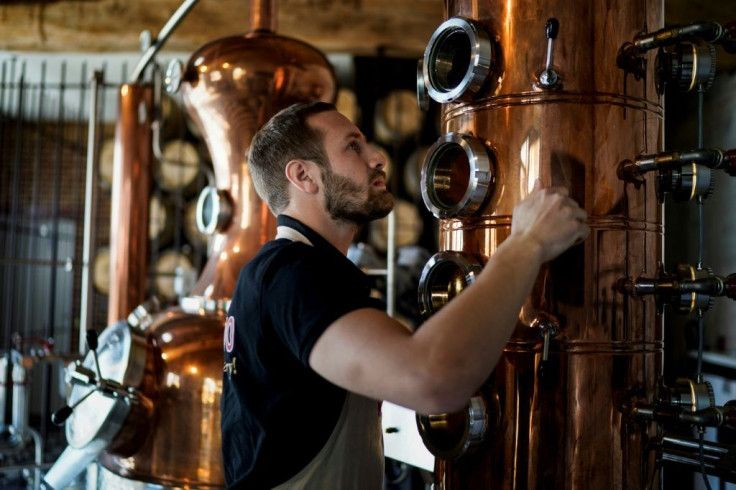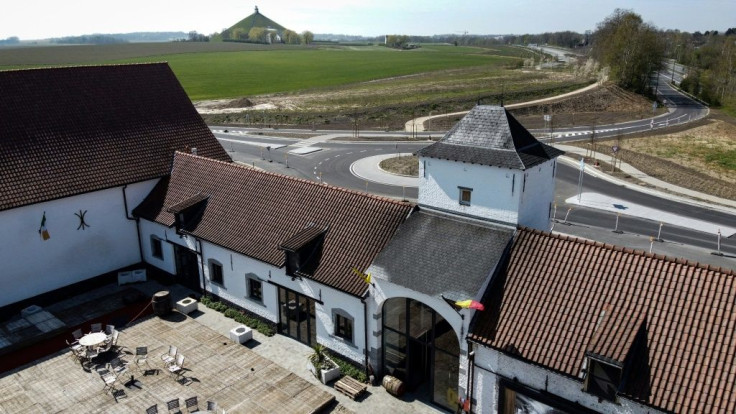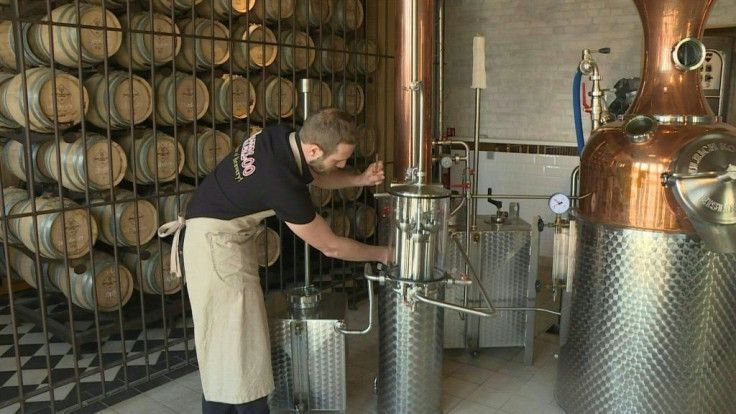From Gin To Gel: Waterloo Distillery Battles Virus

Belgium's gin and whisky drinkers have been shut up at home for three weeks to avoid the epidemic but one Waterloo distillery is taking the battle to the coronavirus.
The historic Mont Saint Jean farm south of Brussels served as a field hospital for the British forces at their decisive 1815 victory against French emperor Napoleon Bonaparte's army.
Now, a micro-distillery housed in its historic buildings has returned to the healthcare business -- putting aside artisanal drinks to instead produce alcohol for disinfectant hand gel.
Several other companies around Belgium and Europe have repurposed their stills, hoping to help end a shortage that has hampered efforts by healthcare workers and consumers alike to protect themselves from infection.
The Waterloo distillery is Belgium's smallest, but the vats that once held luxury tipples now serve 200 litres (53 gallons) of 86-degree proof alcohol per week destined for hand-sanitising gels.
"We noticed that there was a shortage of aqueous-alcoholic gel and a shortage of alcohol. And I said to myself, 'That's my job,'," distiller Edward Martin, the booze-making son of a pharmacist, told AFP at the picturesque distillery in the fields south of the capital.

The distillers' guild oversaw some conversion work on his equipment, and the federal government stepped in to abolish his duties and taxes, and whisky and gin specialist Martin was good to go.

"In concrete terms, it's pretty much the same process," he said.
"At first, we took the alcoholic base of our whisky and sold it to chemists," he explained.
"But now we've moved to fermenting a 100-percent sugar base and moved away completely from grain.
"The goal is just to supply the pharmacies, we don't know how to do anything else with sugar alcohol, it won't make gin or whisky," he said.
The distillery still has some stocks of gin, and some whisky ageing in its barrels for after the crisis. But the three staff members are occupied full-time making pure alcohol.
Making this as cheaply as the process allows has left the company running "at a slight loss," Martin admitted, but: "We're still happy to be doing it."
He added: "It's a civic duty. I think that everyone wants to help, to get over this global crisis together. And at our scale, even the smallest distillery in Belgium can be part of the greater whole."
"Obviously, even only a coupe of weeks ago, I'd never have thought of coming here to pick up alcohol," he said, explaining that from the very start of the crisis hand-cleansing gel and its ingredients have been in short supply.
So he drew up a list of distillers and now does a tour picking up the precious fluid -- enough to supply not only health workers but also concerned shoppers.
© Copyright AFP {{Year}}. All rights reserved.




















